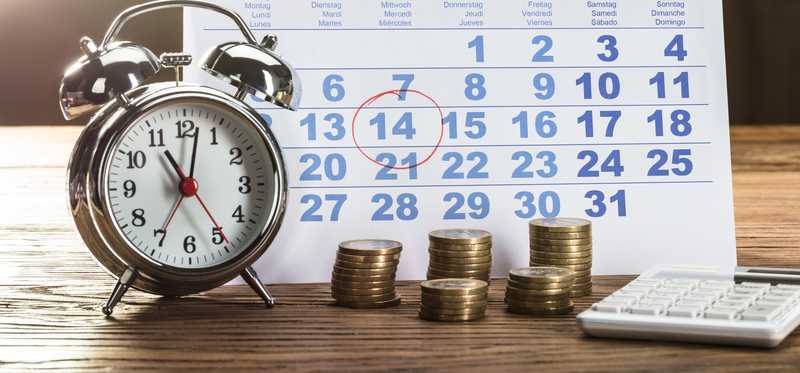10 Brilliant Money Moves to Make in 2024 (No. 3 Is a Must)

10 Brilliant Money Moves to Make in 2024 (No. 3 Is a Must)
Need a new home for your cash this year?
You work hard for your money, so you should make the most of it. That means putting it in the right places.
But where exactly should your hard-earned cash go? The answer depends on your personal situation and the goals you have for it. In any case, making the right choice could save you many thousands of dollars in the long run.
To help you decide on the best place for your cash, check out 10 of the smartest places to put your money in 2024.
Previous
Next

1. Pay off your high-interest debt
The average credit card interest rate is 21.47%, while the typical payday loan has an APR close to 400%. It's very unlikely you'll find anywhere else to put your money that would provide the return on investment (ROI) that comes from avoiding such expensive interest.
If you have low-interest debt, early payoff doesn't make sense. You could earn a much better ROI in the stock market than paying off, say, a 3% mortgage.
If you have credit card debt, see how you could avoid interest for up to 21 months with one of these balance transfer cards.
Previous
Next

2. Invest in your 401(k)
If your employer offers a 401(k) match, you should contribute enough to earn it. A 401(k) match is free money. You also get tax breaks for a 401(k) contribution, as you won't pay taxes on the money you invest in this account.
You can make up to $23,000 in 401(k) contributions in 2024 (plus contribute an additional $7,500 in catch-up contributions if you're 50 or over). You don't necessarily need to max out your 401(k) as there are some other good retirement investment plans to consider. But you shouldn't pass up even a dollar of the matching funds. There's no excuse to leave free cash on the table.
Previous
Next

3. Open a high-yield savings account
Some high-yield savings accounts offer rates above 5.00% as of the start of March 2024. This is way above the national average savings account yield of 0.46%.
Money held in a savings account is accessible any time. Although some accounts have monthly withdrawal limits, they're easy to work around. Your funds aren't at risk if your bank is FDIC insured.
If you have funds you're saving for short- or medium-term goals and will need the money in the next couple years, a high-yield savings account could be the right place for it this year.
See more: 6 bank accounts that could earn you more than 10x the national savings rate
Previous
Next

4. Open a traditional IRA
A traditional IRA allows you to earn tax deductions for contributions -- up to $7,000 worth in 2024 (or $8,000 worth if you're 50 or over).
IRAs provide more flexibility than a 401(k) because you can open an IRA even if your employer doesn't offer a retirement plan. You can choose almost any brokerage firm for your IRA and gain access to more investments than a 401(k) offers. Even if you have a workplace plan, it may be worth supplementing it with an IRA.
Previous
Next

5. Use a Roth IRA
If you want to diversify your retirement accounts, you can put money into a Roth IRA in 2024 instead of a traditional one.
A Roth IRA doesn't come with an upfront tax deduction the year you invest. But withdrawals in retirement are tax free, and the withdrawn funds aren't counted in determining if your income is high enough that Social Security benefits become taxable.
If you suspect your tax rate may be higher in retirement than right now, putting at least some of your retirement funds in a Roth IRA is a good option. These accounts are subject to the same contribution limit as traditional IRAs: $7,000 (or $8,000 if you're 50 or over) in 2024. Bear in mind, this is a combined limit across both accounts.
Previous
Next

6. Open a health savings account
If you have a qualifying high-deductible health plan, you can put money into a health savings account (HSA). You're allowed to contribute up to $4,150 for self-only coverage and $8,300 in family coverage for 2024. If you're 55 or older, you can make an additional $1,000 catch-up contribution.
HSAs are a great place for your money if you're eligible for one. You can deduct the amount you contribute and withdraw money tax free for qualifying medical expenses. This is the only account offering this feature. Usually, you have to decide to claim your tax breaks now or later.
HSAs allow you to pay for medical expenses with tax-advantaged funds, but you don't need to use the money right away. You can leave it invested to grow tax free and use the funds in retirement. You can cover health expenses as a senior, or choose to withdraw funds without penalty for any reason after age 65 (although you'd be taxed at your ordinary rate if you aren't paying medical costs).
Previous
Next

7. Open a certificate of deposit
CDs allow you to lock in your rate for the duration of the CD term. And some certificates of deposit are currently offering rates above 5.00%. This means you could guarantee you keep earning this generous yield even if rates fall.
The downside of CDs is you have to agree to leave your money invested for the duration of the CD's term, and you'll be subject to penalties if you don't. But if you won't need your money for a few months or a few years, and you don't want to risk putting it in the market, CDs are the way to go.
Previous
Next

8. Consider a money market account
Money market accounts are FDIC insured. They frequently offer better yields than even high-yield savings accounts and more accessibility than CDs. While there are monthly limits with some accounts, your cash is generally accessible via an ATM, check, or even debit cards.
Some money market accounts are also currently offering rates above 5.00% in 2024, so you may want to take advantage of this. These accounts are kind of a hybrid savings/checking account, so they're ideal for funds you'll need over the short term.
Previous
Next

9. Use a 529 account
If you have children in your life who may incur educational costs some day, putting money into a 529 account could help them cover those expenses. These accounts come with tax advantages, including tax-free distributions for qualifying educational expenses.
While 529s are commonly known as college savings accounts, up to $10,000 in funds from them can be used for K-12 school tuition costs as well. The rules of these accounts differ by state, so be sure to check out any extra tax benefits they may provide you with where you live.
Previous
Next

10. Open a taxable brokerage account
Finally, taxable brokerage accounts are another good option if you are saving for long-term goals other than retirement or if you want some retirement funds in a more flexible account.
A brokerage account allows you to invest. It's reasonable to expect around a 10% average annual return, if you pick a pretty safe investment like an S&P 500 index fund that tracks the performance of 500 large U.S. companies.
You can withdraw money whenever you want, but won't get any tax deductions for contributions. There's no limit to how much you can put into a taxable brokerage account, though, and you can access any investments your broker offers.
Don't miss: our expert recommendations for the best online stock brokers available today
Previous
Next

The bottom line
Each of these options makes sense in the right circumstances, so consider which one -- or more -- are the right places to put your money in 2024, and watch your hard-earned dollars continue to grow.
Previous
Next
Invest Smarter with The Motley Fool
Join Over Half a Million Premium Members Receiving…
- New Stock Picks Each Month
- Detailed Analysis of Companies
- Model Portfolios
- Live Streaming During Market Hours
- And Much More
READ MORE
HOW THE MOTLEY FOOL CAN HELP YOU
-
Premium Investing Guidance
Market beating stocks from our award-winning service
-
The Daily Upside Newsletter
Investment news and high-quality insights delivered straight to your inbox
-
Get Started Investing
You can do it. Successful investing in just a few steps
-
Win at Retirement
Secrets and strategies for the post-work life you want.
-
Find a Broker
Find the right brokerage account for you.
-
Listen to our Podcasts
Hear our experts take on stocks, the market, and how to invest.
Premium Investing Services
Invest better with The Motley Fool. Get stock recommendations, portfolio guidance, and more from The Motley Fool's premium services.